“We are all quite similar, you just need to scratch the surface a bit”
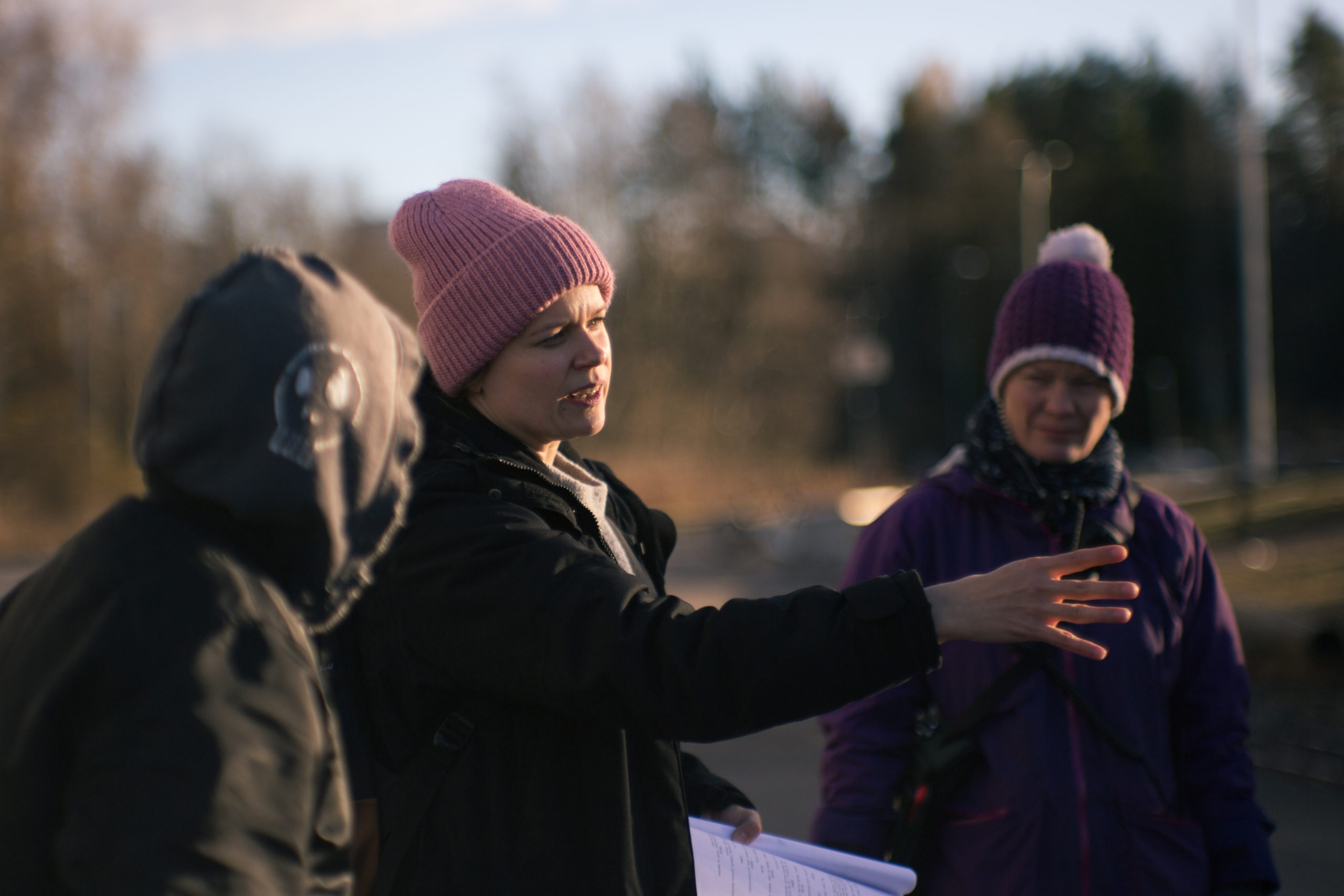
By Marta Bałaga
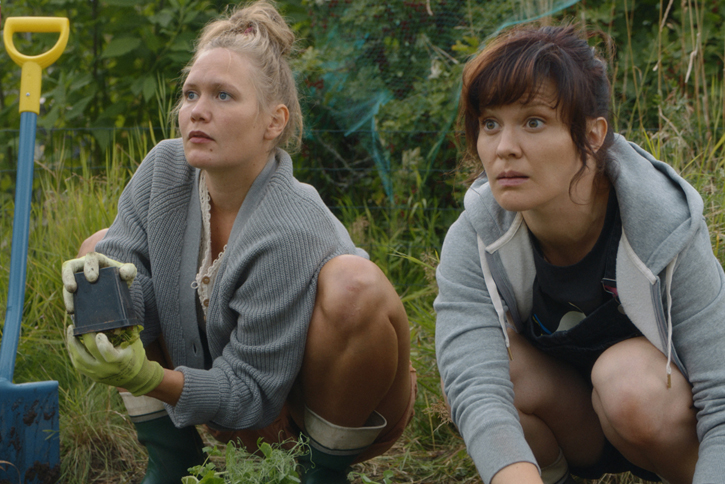
Despite the on-going pandemic, one of Finland’s most acclaimed filmmakers, nominated for the Academy Award for the short Do I Have to Take Care of Everything? and the winner of Berlinale’s Crystal Bear for Stupid Young Heart, refuses to take a break. Now, she is premiering her new 10-episode series Carpe Fucking Diem, co-directed with Kirsikka Saari, showing two women deciding to have the best time of their lives.
Marta Bałaga: I think the first time I discovered your films was at the Berlinale’s film market, where someone gave me a DVD compilation of Finnish shorts including, predictably, Do I Have to Take Care of Everything? You show a family on the verge of a nervous breakdown, to paraphrase Almodóvar, but there is still so much warmth to this story.
Selma Vilhunen: This way of looking at the characters was already in Kirsikka Saari’s script. It’s a bit easier to be brutally honest when at the same time you can feel some love for the characters – it allows you to go further. It’s also my own way of looking at people, I guess. You can find all sorts of colours in each and every person. We are both horrible and lovable, sometimes at the same time.
You often mention the importance of showing your characters as actual human beings. How do you think it started?
I suppose it has always been there, I just gave it more and more thought as time went by. It’s a life philosophy, I suppose, something I grew up with and a reason to make films in the first place. Putting people in all these different categories, thinking they are either good or bad… It’s dangerous and it’s simply not true. We need to be able to look at ourselves, and the people around us, with open eyes. We need to be able to recognise the “bad” in ourselves and in those who are like us, and the “good” in those who have different opinions.
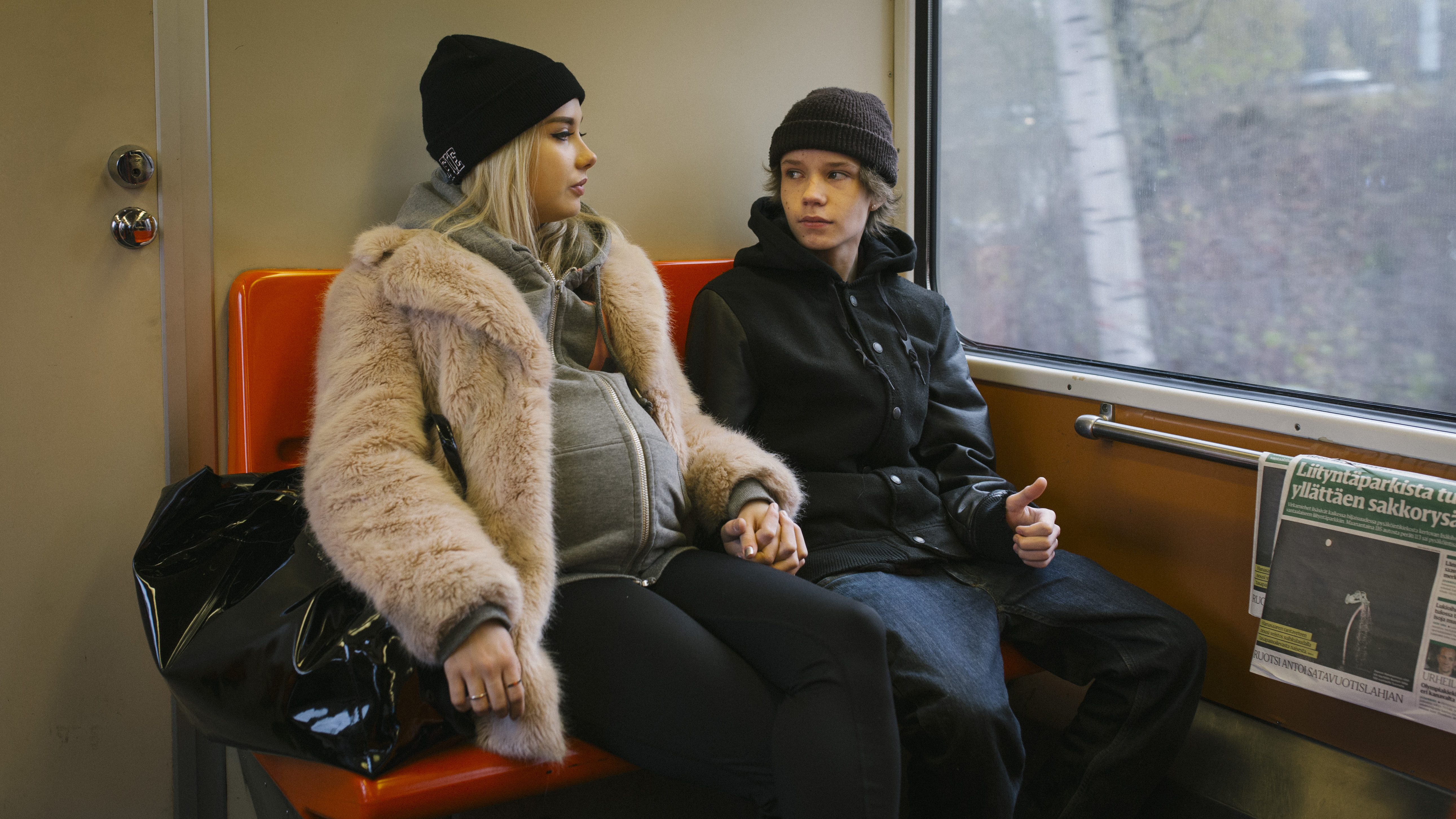
But that’s exactly what we see happening now, something you actually addressed in Stupid Young Heart [with a teenage protagonist finding out he is going to be a father while also becoming involved with local right-wing activists]. Were you wondering about that at the time?
It has been bothering us for years, Kirsikka and me – the rise of the populist right-wing movements. We certainly wanted to look into that phenomenon. I don’t think that our film answers all these questions, but at least it’s shining a light on some aspects of it.
What I was particularly interested in, already when we were developing the screenplay, was trying to take a look at the mechanisms of racist thinking. I just wish there were more films about this topic from different points-of-view, made by people of colour who are obviously affected by it the most.
I noticed that every time you talk about your films, you also talk about being a female director, or just working with other women. Is it something you find important or are you simply put in that situation?
I am always asked about it. One is always reminded about one’s gender these days. It’s a two-sided situation: it’s important to address the fact that the film industry and the film canon are still dominated by men. On the other hand though, we also need the kind of discussion where different filmmakers are treated equally, or just as filmmakers for that matter.
Sometimes I can’t help but feel like it’s a bit counterproductive, mentioning it all the time. It does get a bit tiring I guess, to be constantly treated like this “gender representative”. So maybe it’s an act of equality not to ask about it?
I guess it doesn’t help when you also happen to work in an all-female company like Tuffi Films?
At first, there were just four of us [Kirsikka Saari, Elli Toivoniemi and Jenni Toivoniemi] before Venla [Hellstedt] joined us as well. We all used to dream about being a part of a production company, for many different reasons. I simply wanted to create great films, and not just the ones I would hopefully direct myself.
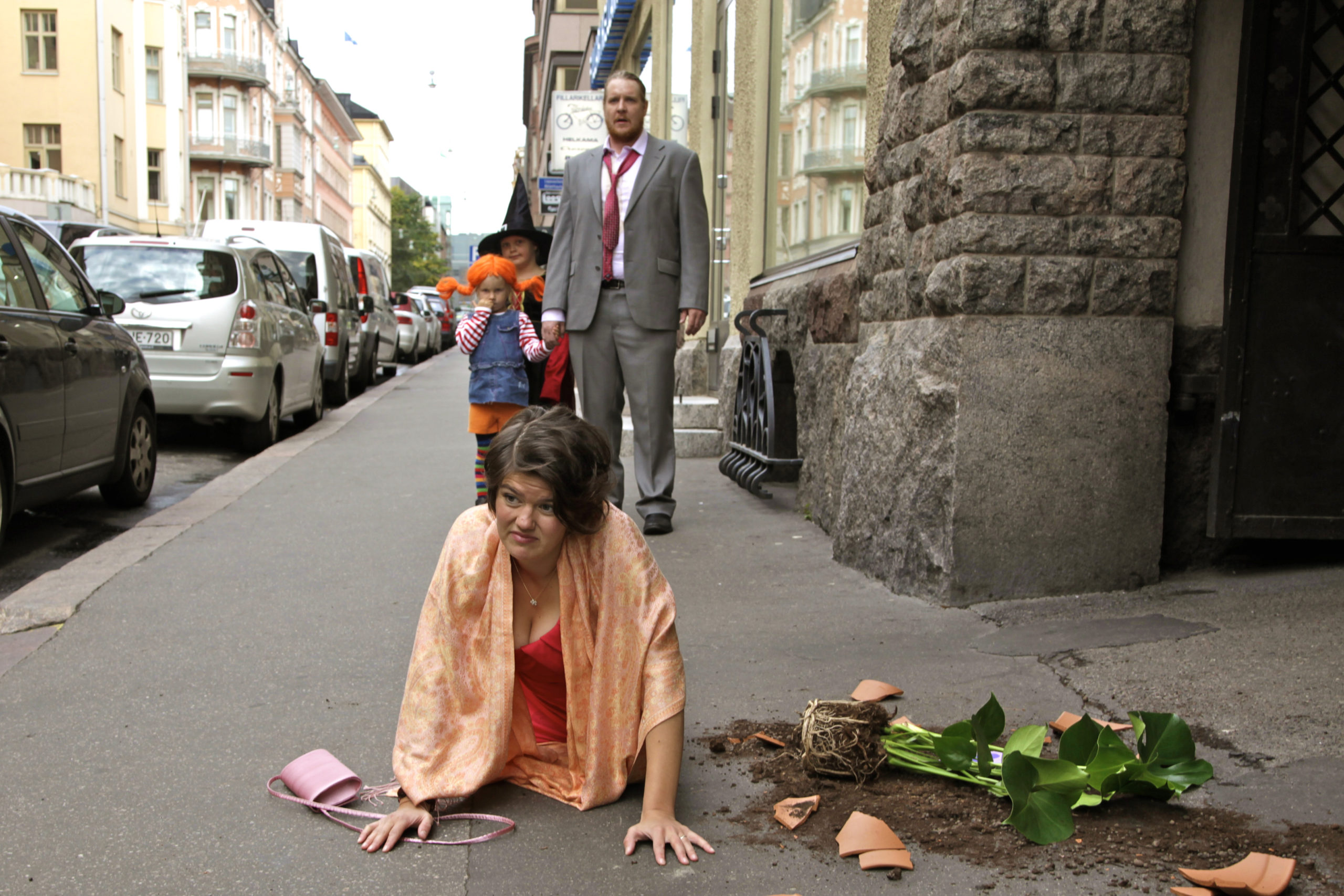 We all shared similar ideas, even though we didn’t really know each other at first. We started to “date” in 2009 – we would meet up, have some tea and talk about this idea of founding a company together. We even attended a course for entrepreneurs in creative businesses! After that, we just went ahead and did it.
We all shared similar ideas, even though we didn’t really know each other at first. We started to “date” in 2009 – we would meet up, have some tea and talk about this idea of founding a company together. We even attended a course for entrepreneurs in creative businesses! After that, we just went ahead and did it.
We started by developing my documentary Song [about the last Finnish rune singer and his student], and then Do I Have to Take Care of Everything? was the first project we completed. We shared a similar taste in films and some bad experiences in the industry, so during these first few years, there was a lot of talking and learning.
I think ultimately we got very lucky, because that hunch we all had turned out to be true – we still share the same taste and we have grown up a lot together. What I value in our company a great deal is the kind of atmosphere where one is free to experiment and also make mistakes. You don’t always have to put on a “strong person” mask. You can show your vulnerability and weariness, if that’s the situation. This sense of freedom and support is important when you want to create good art.
I love the idea of “dating” before you start a company. But doing it is one thing and being actively involved in each other’s projects is quite another.
That is interesting indeed. It happened organically at some point, with Elli having an idea for a film and it was so personal that she needed to be the director. And that’s what she did! It happened to every one of us at one point, although when I tried to be a producer, it never really went anywhere [laughter]. I just wasn’t very good. But at Tuffi Films, producers have directed, writers have produced, and so on. Maybe it’s a good thing – now, we can really appreciate when somebody gets something done. We have all been there.
There is a great deal of trust at this point, so when someone says: “I think this is what needs to be done”, others listen. Of course there are egos clashing sometimes or people wanting to be recognised. But we have learnt to think about the big picture. I used to be more selfish, more afraid of my “status”, so now it just makes sense to work towards a common cause.
And also, it’s stupid to make art-house films if you want to make money – if you want to make a lot of money just do something else. It helps when you find people who are not interested in that either, who are interested in making a living instead of getting their share of huge revenues. It makes our life a lot easier.
You seem to have figured out what can get just the right kind of attention abroad, which is not an easy feat. When watching your films, I never feel like I am missing something just because I am not Finnish. Even with something as peculiar as the Hobbyhorse Revolution.
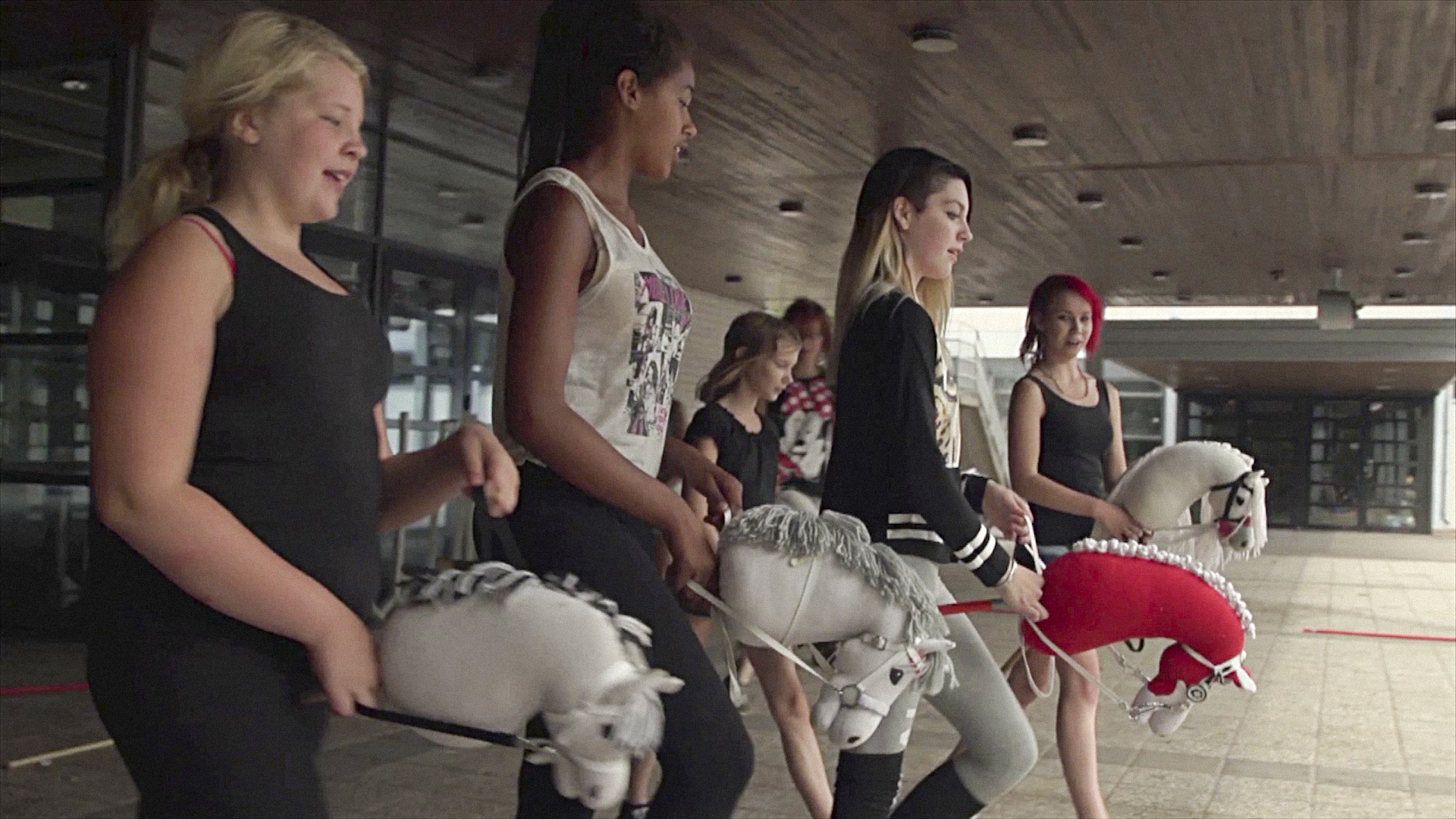 I think it might have something to do with what we discussed before, with me intentionally choosing to show characters that feel human. It helps the story to be viewed as more universal, as instead of looking for something that sets us apart. I find common traits we all share. We are all quite similar, you just need to scratch the surface a bit.
I think it might have something to do with what we discussed before, with me intentionally choosing to show characters that feel human. It helps the story to be viewed as more universal, as instead of looking for something that sets us apart. I find common traits we all share. We are all quite similar, you just need to scratch the surface a bit.
That being said, Hobbyhorse Revolution wasn’t that well received in Italy! The audience, mostly middle-aged women, didn’t understand the film at all and after the screening I basically had to explain the whole story again. “Why did you want to make this kind of film, where nothing happens and that has no topic?” – they would ask. It was a very interesting Q&A [laughter].
It took me a while, but now I actually value the experience. I thought it might have had something to do with the characters not being in any kind of relationship with the opposite sex. Maybe that was confusing to the Italian audience, looking at a girl who is passionate about hobbyhorse riding, who’s not somebody’s girlfriend or a mum-to-be. So it’s not like all my films have successfully travelled.
What made you come back to that story after 2008’s Pony Girls?
There were quite a lot of years that have passed in between, and when I was making Pony Girls I certainly didn’t anticipate I would ever discover such a big community like the one I showed in Hobbyhorse... I think they are sister-films – they are definitely related.
Later, when I came upon this big hobbyhorse scene, I felt ready. I thought that if anyone was going to make this film, it should be me. There was another reason, too: I made Pony Girls because I used to be one myself. That also helped, as it was a part of who I already was.
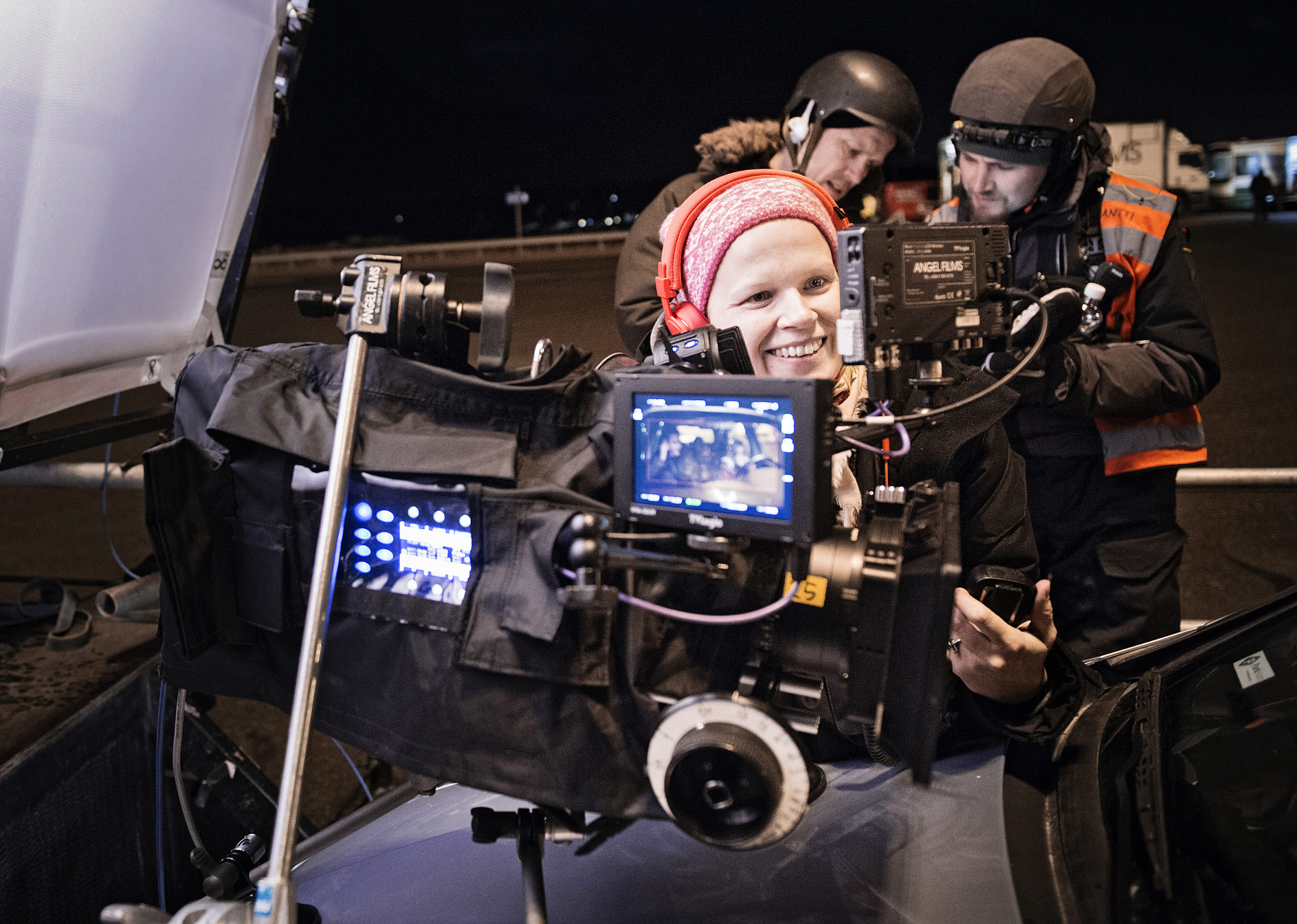
I am sure it did, but you can’t always share your protagonists’ experiences when deciding to make a documentary about them. How do you usually enter their world?
You need to have time, in a way. You just need to have time. Financially, it’s a disaster of course, but it allows you some flexibility. It’s hard to get into other people’s lives, especially when they are teenagers going through some difficult things. They cancel dates, they disappear, they just don’t understand you have already rented some expensive equipment and hired people to help. And sometimes you just have to live with it.
When I have time, I can just keep on going until I have what I need. This approach helped me become a much more relaxed filmmaker. I don’t want people to feel pressured into anything. It’s nice to be able to just go to someone’s house and film whatever feels fine on that day, stopping when someone starts to feel too exposed. Then I just grab my camera and go home. Time has been my most important tool, especially in Hobbyhorse Revolution. I decided I would take it easy this time. When making Song, I was pushing more.
Was it because of your protagonist’s advanced age?
Probably, but I was also inexperienced and very ambitious, and there were certain things I thought I needed to achieve. I was trying to “milk” it more and it just created some unnecessary pressure. When I stopped, I just became happier.
Before I started to shoot Hobbyhorse Revolution, I spent a long time on the online hobbyhorse forum this community had at the time, one that’s not very active anymore. I was discussing the idea of the film with them, made myself known. I asked them what kind of film they would like to see and what they don’t want to show at all. I tried to be more on the receiving side of things.
I think you just answered my upcoming question about working with kids. Not pushing too much, taking your time – it sounds just like the right way to do it. In films, they often turn into archetypes, the queen bees and wannabes. But not in the Little Wing.
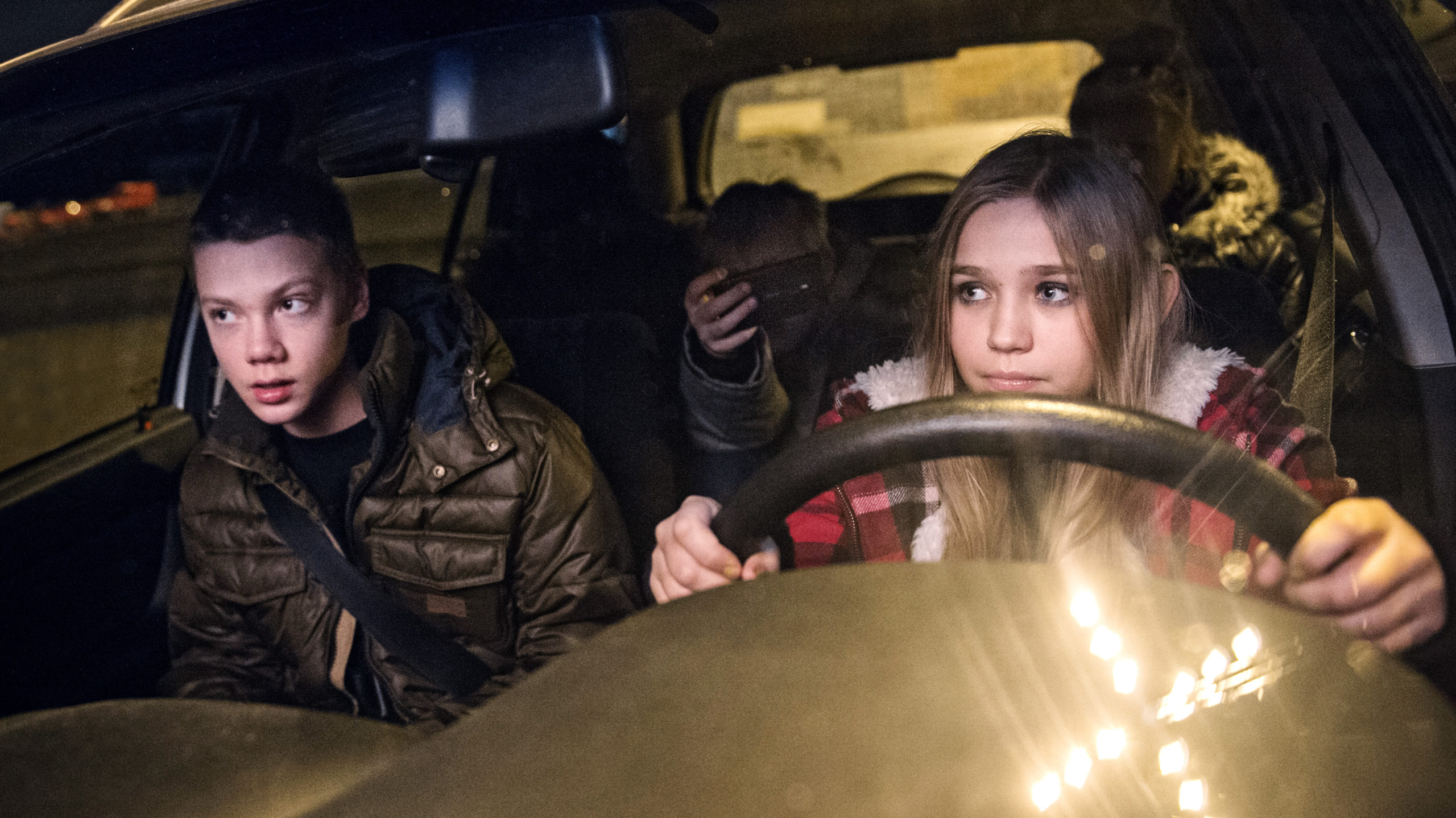 For this film [about a 12-year-old Varpu, deciding to finally meet her mysterious father] I was looking for a girl who is an “old soul” – someone I could talk to quite directly. Of course I knew I would have to take into consideration that this person is still a child, but Linnea [Skog] understands all these “deep problems of the human soul”. I found that in her.
For this film [about a 12-year-old Varpu, deciding to finally meet her mysterious father] I was looking for a girl who is an “old soul” – someone I could talk to quite directly. Of course I knew I would have to take into consideration that this person is still a child, but Linnea [Skog] understands all these “deep problems of the human soul”. I found that in her.
She was brave, open and possessed this certain kind of intelligence that you just need as an actor – when she says a line in the film, you know that she means it. Once I found her, it was very easy to work, not at all different from working with adult professionals. I just needed to remind myself that she is, in fact, only 12 years old, that I need to make sure she is alright and talk to her parents sometimes.
Luckily I always try to find ways to make people comfortable with each other, or with their roles. And when they do, that’s when we are ready to shoot. I am working on a new script now and it has nothing to do with teenagers though. I got to the point when I am actually excited to talk about middle-aged people!
In these two films, Little Wing and Stupid Young Heart, you show kids who can’t really stay kids anymore. One is dealing with a troubled dad, the other is about to become one himself.
It’s true, but maybe it just has something to do with that age? That’s what you are going through anyway as a teenager, even when you live in a safer environment, always exploring this space between childhood and adulthood. These kids, they need to grow up a bit faster, it’s true, but there is still a little bit of hope. Which is also why in Little Wing for example I didn’t want to portray Varpu’s mother as too hopeless a case. She is going through a tough time, but she hasn’t always been so weak.
There is always hope as long as there is some life left – I guess it’s also my worldview. But thinking about it now, in order to find hope you need to look directly at your hardships. You can’t turn away from things that are hopeless or sad, you need to acknowledge they are there. Only then, once you have accepted it all, that’s when you can finally see the light. In my films I generally like to go quite dark, and then open the curtains.
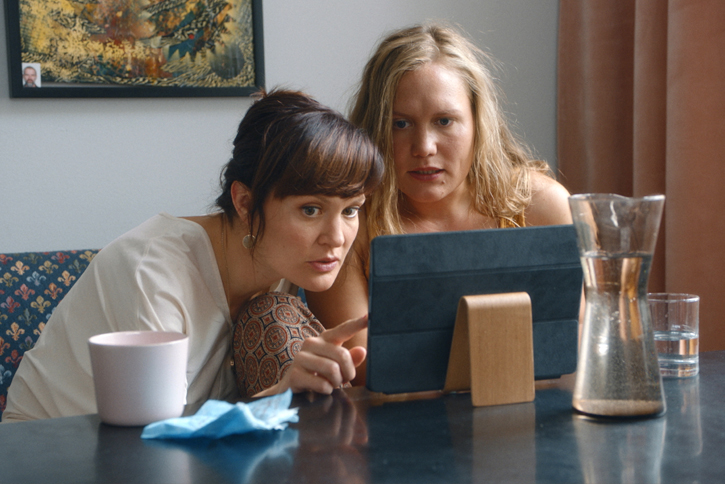 Thinking about what you said before, about being excited to talk about middle-aged people, you also got to do it in Carpe Fucking Diem?
Thinking about what you said before, about being excited to talk about middle-aged people, you also got to do it in Carpe Fucking Diem?
These women, they are both in their thirties – one is experiencing a serious burnout, the other was just dumped by her partner of 17 years. They are facing a new beginning, deciding to move in together and finally do all the things they always thought they will one day, when they are retired or when life gets easier. So now, they go: “Why not just do it right now?”
It might be about trying to get very deep into meditation, experiment with drugs, participate in an orgy. But the comedy derives from the fact that people are still who they are, and it’s not a coincidence that their lives have gone the way they did. It’s not like you just wake up one day, carefree and completely uninterested in what other people think. They struggle with themselves.
Was it always supposed to air in the spring? Because now, in the midst of the pandemic, TV series have become everybody’s best friends – they keep us company.
It was first scheduled to premiere on the second of April, now they moved it ahead by one week, so I guess there is a silver lining to this crazy situation. I think the topic of our series is very on point. After all, this is the time that makes many people think about what they really want from life. The characters are forced to stop their daily routines too, and then they want to re-evaluate their lives. It can resonate with a lot of people right now. And also, it’s funny! Giving us a relief from all this sadness, hopefully.
I read somewhere that you always knew you wanted to make films, you knew how to “look”. But how do you go from thinking “I have this ability” to “maybe I can make others see it as well”?
I don’t know if I really thought that I have this ability when I was making my first films. Maybe it’s something that came later, when looking back. These first films… I just made them. It felt enjoyable for some reason, for many reasons actually.
Maybe I experienced this feeling of being able to capture something on film, I am just not sure I had the right words for it at the time. But I didn’t worry so much about whether other people will like my films and I think that helped me to keep on going.
It was obvious for me somehow: I make films, and that’s how it is. I didn’t feel the pressure of being “liked” as a filmmaker. In school, I would often hear that I don’t have the necessary qualities to make it as a director. It hurt, but I decided I will just make movies and either I get paid for them or I won’t. It was quite freeing.
What does it even mean, “having the necessary qualities to make it as a director”?!
Exactly! I am very happy that even back then, being so young, I intuitively knew that these people were wrong. It’s not like I immediately forgot everything they said – I did worry about it. But I didn’t stop. They felt I was too soft and indecisive, too shy to be a director. I guess it also had something to do with that time, the mid 1990s, and the idea of what it means to be a director has changed a lot since then, thank God.
Today, I am 43 years old and I know the craft, so of course it’s much easier to make quick decisions and to defend them. But what they were saying back then was that there are things I will never learn, and that it takes a specific kind of character to be a filmmaker.
I remember that one time, my friend went to some film festival, I don’t even remember where, and she saw Lucile Hadžihalilović. She was at the Q&A after the screening of her film and my friend was so inspired: she was quiet, unassuming and when asked about something, she would just go: “Oh, I don’t know…” She showed her a new way of being a director. I remember this so well as an example of something completely different from that stereotype of the male genius, yelling at everybody on set.
To make a film, you just need to know what you want and press the right button. You can be whatever you please, as long as you get it done.
Head image: Selma Vilhunen on the set of Stupid Young Heart, photo by Janina Witkowski
